IMPACT
 ROBERT STEMPEL COLLEGE OF PUBLIC HEALTH & SOCIAL WORK REPORT 2022
FLORIDA INTERNATIONAL UNIVERSITY
ROBERT STEMPEL COLLEGE OF PUBLIC HEALTH & SOCIAL WORK REPORT 2022
FLORIDA INTERNATIONAL UNIVERSITY

 ROBERT STEMPEL COLLEGE OF PUBLIC HEALTH & SOCIAL WORK REPORT 2022
FLORIDA INTERNATIONAL UNIVERSITY
ROBERT STEMPEL COLLEGE OF PUBLIC HEALTH & SOCIAL WORK REPORT 2022
FLORIDA INTERNATIONAL UNIVERSITY
We are a research powerhouse in Miami, Florida, educating students in the areas of public health, social work, dietetics and nutrition, and disaster preparedness.
At Stempel College, we work diligently because society depends on it.
We advance research to help solve the public health and social welfare issues of our time.

We collaborate with community partners, because we know together, we make a greater impact.
We are driven to improve health for all. And we are just getting started.
FLORIDA INTERNATIONAL UNIVERSITY ROBERT STEMPEL COLLEGE OF PUBLIC HEALTH &
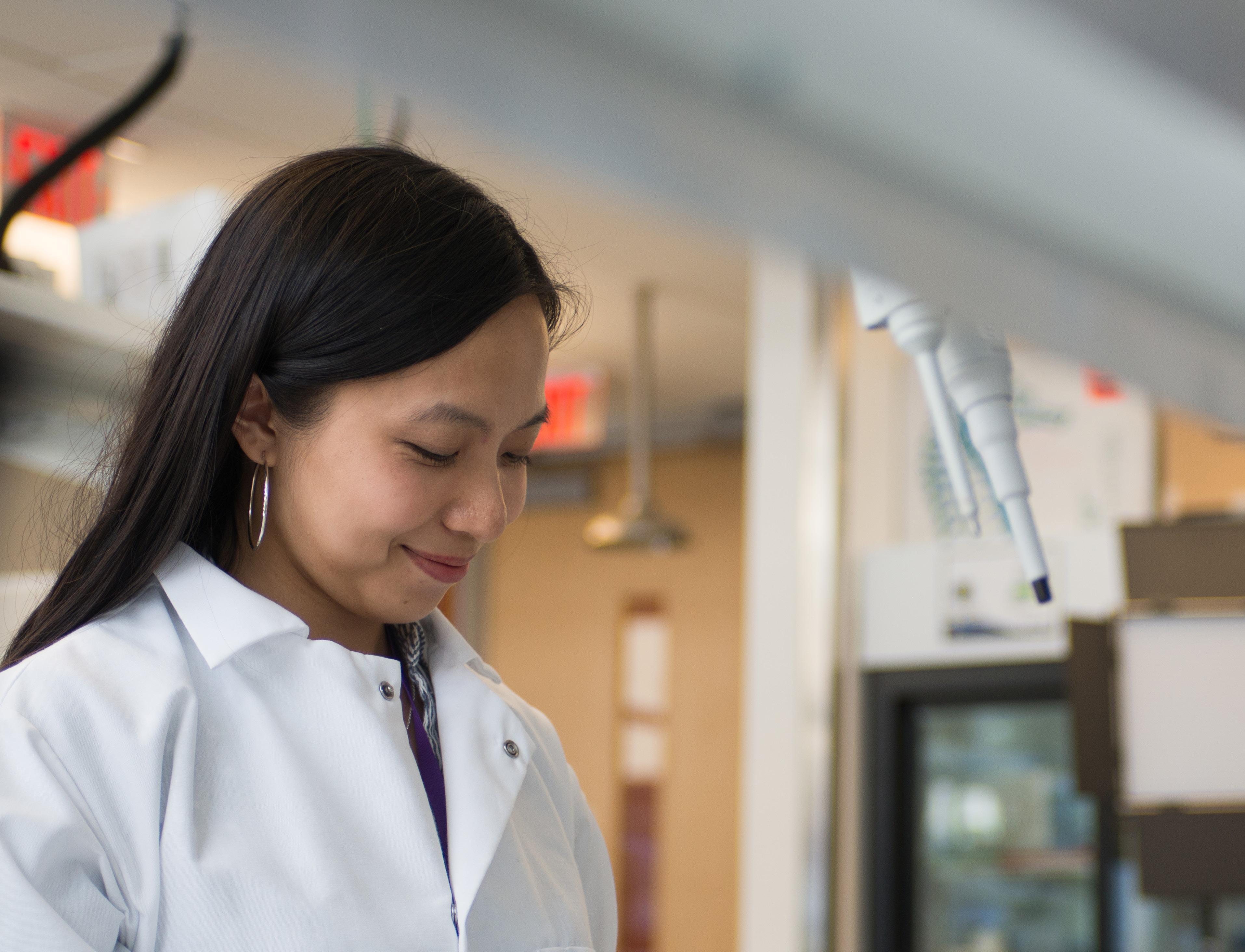
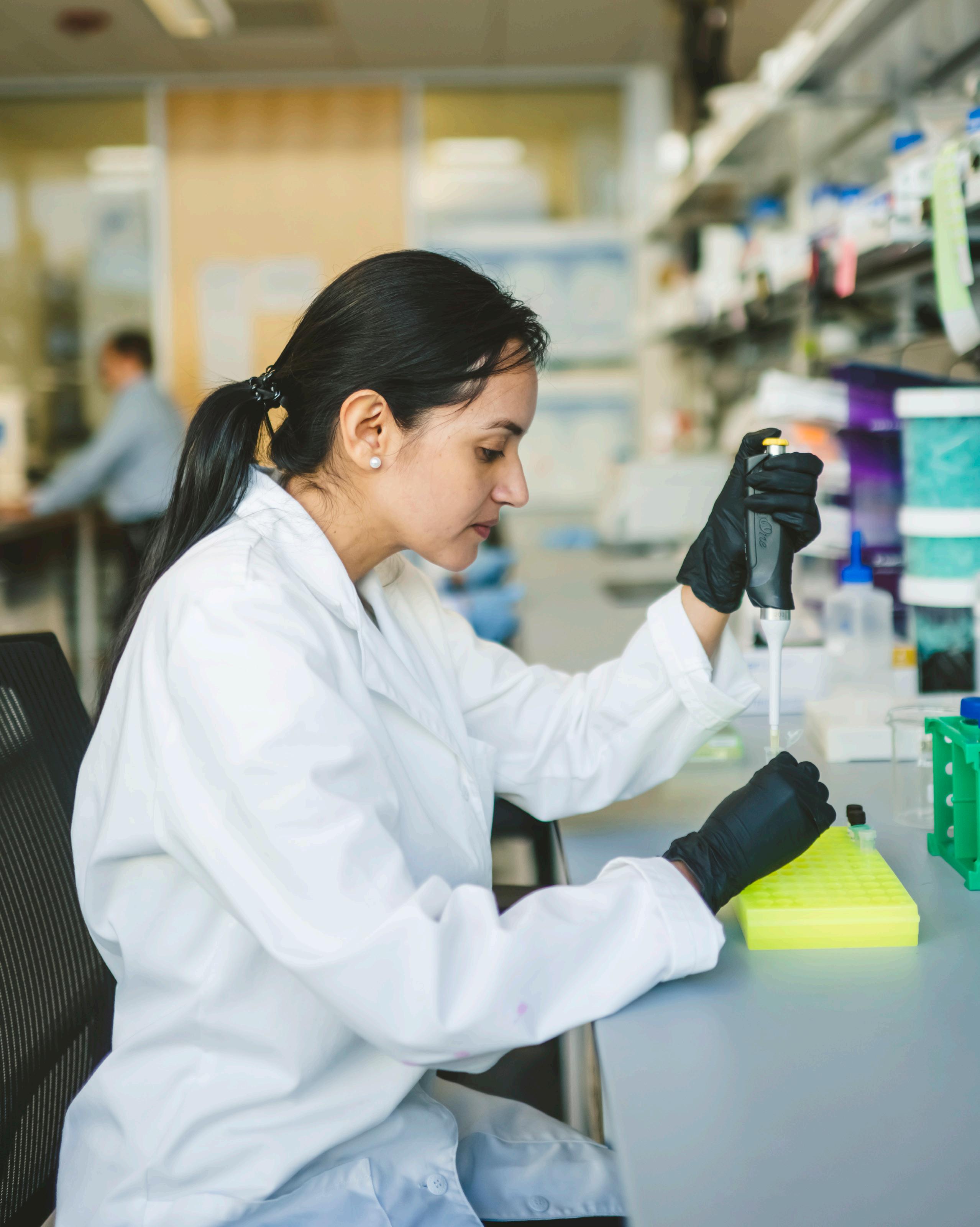

This past year has been one of pride for us here at Florida International University.
Together with our faculty, staff, and students, we celebrated 50 years of FIU’s excellence in research, success, and growth. When FIU opened its doors in 1972, it opened the door for students to attend, what today is, a top-ranked institution in one of the most diverse cities in the country.
I am proud of how far our university has come and the path its paved for our Stempel College to be what it is today: an academic powerhouse making strides in the areas of public health, social work, dietetics and nutrition, and disaster preparedness. Disciplines that each have the force to make a true, lasting impact on the health and safety of communities near and far.
Every year, I reflect on the progress that we’ve made and the challenges we’ve overcome. Looking at the state of public health today, it’s no doubt that we’ve made a difference in the lives of many. But I’d be remiss not to say there’s still more work to be done. Looking forward, I see tremendous promise for us here at Stempel College.
In 2022, our college received $2 million, secured by Congresswoman Debbie Wasserman Schultz, to jumpstart funding to develop a PET/Cyclotron Center at FIU—the first of its kind in the state university system. The center would allow our university to perform imaging studies on several diseases particularly prevalent in the community.
We also secured $2 million in state appropriations, with support from former state Senator Anitere Flores and current state Representative Bryan Avila, that will help fund new state-of-the-art robotic instrumentation, and pave way for CLIA certification, expanding our capacity to work with hospitals and patients nationwide.
Most recently, FIU’s Research Center in a Minority Institution won a $19.4 million National Institutes of Health grant to fight health disparities—the largest NIH award in FIU’s history. Faculty and staff from Stempel College and other FIU units played a significant role in securing the award and I couldn’t be prouder.
These are three significant achievements that will help our Stempel College to continue in its ascent in research and student success. I invite you to explore our latest Impact report to learn more about the impactful achievements of our faculty, students, and staff.
With immense gratitude,
Tomás R. Guilarte, Ph.D.
Dean, Robert Stempel College of Public Health & Social Work Professor, Department of Environmental Health Sciences Professor, Cognitive Neuroscience & Imaging Director, Brain, Behavior & Environment Member, Biomolecular Sciences Institute




Florida International University researchers are at the forefront of ensuring the health and well-being of underserved communities don’t slip through the cracks. In 2017, FIU’s Community-Based Research Institute won a $13.1 million grant from the National Institutes of Health (NIH) to build the Research Center in a Minority Institution at FIU (FIU-RCMI), which focused on world-class, community-partnered health disparities research and training.

A health disparity is a health difference that adversely affects disadvantaged populations, such as a greater likelihood and earlier onset of disease, more risk factors for disease, worse patterns of disease symptoms and premature and/or excessive morbidity and mortality. Diseases with well-documented health disparities include HIV, Alzheimer’s Disease and cancer. In recognition of the FIU-RCMI’s exceptional performance and its plans for expansion, NIH just renewed the FIU-RCMI with a 5-year, $19.4 million grant, which is the university’s largest NIH award to date.
Eric F. Wagner, FIU-RCMI’s principal investigator and professor of social work at the Robert Stempel College of Public Health & Social Work, notes, “The new grant is especially timely and important for increasing FIU health disparities investigators’ success in obtaining competitive extramural research support. We pride ourselves on providing a variety of training and mentorship opportunities conducive to grant and career success for post-doctoral fellows and earlystage investigators, particularly individuals from groups underrepresented in science.”
“The goal of our FIU-RCMI Investigator Development Core program is to expand the pool of researchers at FIU who will carry out health disparities research and who will be in a strong position to obtain funding to support their work,” said Dr. Mary Jo Trepka, core leader and chair of epidemiology at Stempel College. Trepka has led four cohorts through the program. She adds, “It’s extremely rewarding to see them become independent investigators who are getting publications and receiving their first large NIH grants.”
The FIU-RCMI Investigator Development Core is co-led by Jason Mitchell, associate professor of health promotion and disease prevention at Stempel College.
Since its inception, the center has supported and mentored dozens of post-doctoral fellows, junior faculty and other early-stage investigators. Many have gone on to develop significant careers, including some key researchers at FIU.
“The FIU-RCMI has and will continue to drive FIU’s outstanding growth in research capacity in the area of health disparities,” said FIU President Kenneth A. Jessell. “Over the past five years, our faculty have demonstrated a passion and commitment to the kind of work that has a positive impact on the health of our community and the world.”
The three major research projects funded by the new grant are led by researchers who received mentoring and training through the FIU-RCMI.
“These are research projects led by investigators from backgrounds underrepresented in science, given that all are women and several further identify as minorities,” said Wagner. “These are brilliant researchers who have overcome historical and systemic obstacles to obtaining NIH funding and are using science to make the world a better place.”
THE NEW GRANT WILL ALLOW THE FIU-RCMI TO EXPAND ITS SCOPE TO HELP:
• Address HIV and COVID-19 disparities among people with HIV.
The pandemic has caused disruption to HIV services and care, substantially impacting people with HIV. Diana
Sheehan, assistant professor of epidemiology at Stempel College, will mine and interpret data to understand whether the pandemic has exacerbated HIV disparities among minority populations.
• Explore microbiome profiles, sleep and cognition among mid-life Latinx adults.
Latinx populations are disproportionately affected by health disparities related to sleep and are 1.5 times more likely to develop dementia, including Alzheimer’s disease. The NIH-funded study led by Shanna Burke, associate professor of social work at Stempel College, and Sabrina Sales Martinez, assistant professor of dietetics and nutrition at Stempel College, will be among the first of its kind to examine microbiota, metabolome, sleep, stress and cognition measures to identify early risk factors of Alzheimer’s disease linked to gut health.
• Reduce cancer disparities in Hispanic and Black children in Miami.
Diana Azzam, assistant professor of environmental health sciences at Stempel College, is determined to identify drug treatments that can help improve the health of childhood cancer patients from minority populations. Azzam’s lab is conducting a study to identify specific biomarkers among minority populations that can be targeted using FDA-approved drugs.
The FIU-RCMI Research Capacity Core is devoted to providing measurable and sustainable research resources and support to help underrepresented early-stage investigators flourish. Zoran Bursac, leader of the FIU core and chair of biostatistics, notes that the primary goal of the core is “providing infrastructure support and connecting underrepresented early-stage investigators to resources, including guidance and training in contemporary quantitative, qualitative and mixed methods approaches to prepare pilot proposals, conduct, analyze and publish data and competitive K and R applications.” The FIU-RCMI
Research Capacity Core is co-led by Michael Anastario, assistant professor of health promotion and disease prevention at Stempel College, and Melissa Ward, assistant professor of epidemiology at Stempel College.

The center also partners with community organizations to disseminate vital health information to underserved communities. For example, FIU-RCMI won supplemental NIH funding to help address COVID-19 health disparities plaguing minority communities in South Florida. Last year, together with community partners, the FIU-RCMI invited South Floridians from predominantly Black, Hispanic and Haitian-Creole communities to a series of seven virtual COVID-19 town hall meetings. The FIU-RCMI provided public health and medical experts to briefly present state-ofthe-science community-specific information on COVID-19 prevention and vaccination and addressed community member questions about the pandemic.
The FIU-RCMI Recruitment Core is responsible for recruiting at least three established health disparities investigators, from backgrounds underrepresented in science, to bolster the center’s research, training and community engagement efforts in health disparities. Tomás R. Guilarte, core leader and dean of Stempel College, is particularly appreciative of the university’s support of this hiring initiative, which will involve “a national search to recruit three investigators with externally-funded research programs related to health disparities and health equity to join the FIU faculty and contribute to the research mission of our center.”
The FIU-RCMI Recruitment Core is co-led by Burke and Sales Martinez.

FIU-RCMI faculty also work closely with under-resourced community organizations to build their research capacity. “We’ve gone on to secure large-scale grants in partnership with them, and they have gone on to secure grants independently, speaking to the mutual benefit of our community-university research partnerships,” Wagner said.
“The town halls helped the people who were hesitant and just needed opportunities to hear more information from people they trusted,” said Michelle Hospital, leader of the FIU-RCMI’s Community Engagement Core and an associate professor of biostatistics at Stempel College. “Our community partners played a big role in helping us connect with these individuals.” The FIU-RCMI Community Engagement Core is co-led by Melissa Howard, associate professor of health promotion and disease prevention at Stempel College.
The FIU-RCMI team is comprised of 25 FIU faculty from various disciplines and currently contributes to 78 different faculty, staff and student positions. Although most faculty are from Stempel College, the team includes researchers from the Herbert Wertheim College of Medicine, the Nicole Wertheim College of Nursing & Health Sciences and the College of Arts, Sciences & Education at FIU.
The FIU-RCMI Research Studies Leaders: From L to R, Sabrina Sales Martinez, Shanna Burke, Diana Azzam & Diana Sheehan
DDT was extensively used between the 1940s and 1970s to combat insect-borne diseases like malaria and treat crop and livestock production. Although banned in the U.S., DDT exposure is likely possible today from legacy contamination or imported foods. Published in Environmental Health Perspectives, a study by researchers at Stempel College in collaboration with Rutgers University shows how DDT causes increased amounts of toxic amyloid beta, which form the characteristic amyloid plaques found in the brains of those with Alzheimer’s disease.
– Jason Richardson, corresponding author, and professor of Environmental Health Sciences.
For years, researchers have been working to identify risk factors and treatments to help slow the progression of Alzheimer’s disease. Supported by a new supplement grant from the National Institutes of Health (NIH), Tomás R. Guilarte and his team of researchers are zeroing in on the translocator protein 18 kDa (TSPO). The protein is nearly non-detectable in healthy brains but increases with neurodegenerative diseases like Alzheimer’s disease. “We want to understand if the increase in TSPO levels in the brain of Alzheimer’s disease subjects is helpful or harmful for the progression of the disease,” Guilarte says.

“This finding could potentially provide a roadmap to future therapies for people highly exposed to DDT.”

The Clinical Research Lab for Tobacco Smoking looks at the addiction and toxicity profile of emerging tobacco use methods and ways to reduce their harm. “Our research will help create evidence to inform regulatory and policy solutions to the tobacco epidemic, especially those related to emerging tobacco products popular among youth, such as e-cigarettes,” said Wasim Maziak, who serves as principal investigator at the lab and is a professor of Epidemiology. Researchers emphasized that there are too many unknowns as to the long-term dangers of e-cigarette usage because it is a new phenomenon. The four main data domains that will be studied are user perception, toxicity, lung function, and addiction.
 Members of the research team, from L to R: Katherine Pita, Wei Li, Rime Jebai & Tarana Ferdous
Members of the research team, from L to R: Katherine Pita, Wei Li, Rime Jebai & Tarana Ferdous

Diana Azzam, assistant professor of Environmental Health Sciences, heads a lab at FIU that specializes in individualizing treatments for pediatric and adult cancer patients who have run out of options. Working with local hospitals, including Nicklaus Children’s Hospital and Cleveland Clinic Florida, Azzam tests hundreds of FDAapproved drugs to find the best treatment for each patient. Azzam says the situation is more critical for pediatric cancer patients, her individualized plan addresses this gap in treatment by finding the right approved drugs for each cancer patient. Azzam was awarded $2 million in appropriations to help acquire stateof-the-art robotic instrumentation that will greatly increase the speed and efficiency with which she and her team identify personalized treatment options, allowing more patients to be helped every day. This will allow Clinical Laboratory Improvement Amendments (CLIA) certification — an important certification that would propel the university to the forefront of this field at a national level.
 From L to R, Dia Alwadi and Alok Deoraj
From L to R, Dia Alwadi and Alok Deoraj
Throughout the ongoing global health crisis, Stempel College has taken the lead in gathering experts to effectively disseminate information and foster meaningful discussions among the broadest audience of stakeholders. In December of 2021, the college partnered with the Society of Colombian Pediatrics to host an in-person conference in Cartagena. Global health and medical experts, university researchers, and government officials convened to share best practices and develop recommendations to boost vaccine coverage in low-and middle-income countries.
That followed three virtual conferences over the previous 18 months that saw the participation of thousands who listened to leaders from the Pan American Health Organization, the World Health Organization, and other groups exchange strategies to manage complex challenges around the coronavirus.

Such concentrated activity during the pandemic comes after years of cooperative research between FIU and scientists in Latin America and the Caribbean various critical healthrelated areas. Of particular interest have been various scientific investigations related to environmental pollutants’ impact on human well-being.
One that is nearing conclusion is a $3 million project begun in 2019 with the University of Córdoba to evaluate contamination levels of the 400-milelong Atrato River and the consequence on the surrounding populations. Results from the study, funded by the Colombian government, are forthcoming.
A second project, under the direction of renowned neurotoxicologist Tomás R. Guilarte, dean of Stempel College, has researchers from FIU and in Colombia studying how to counter the effects of lead poisoning among young victims.

”There are estimates that up to 40 percent of the world’s children have learning problems due to lead exposure,” says
Guilarte, a celebrated pioneer of research on the subject. “In partnership with Colombian researchers, we are poised to begin work on developing a simple, effective, and safe therapy for such children.”
Later this year, in conjunction with researchers from the University of Cartagena, Rajiv Chowdhury, chair of the Department of Global Health, aims to begin a new study of the public health impacts of climate change on a coastal population. “They are highly vulnerable to things like a saltwater intrusion into their drinking water and rise in environmental air and toxic metals pollutants, each of which has been shown to increase people’s risk of cardiac and neurological conditions,” Chowdhury explains. He will also examine whether a change in climate and environmental factors over time increases the risk of worsening major global health challenges such as antimicrobial resistance.
have the right setting, and now we have the right partners,” Chowdhury says of the community of scholars invested in the work.
“We
“We have the right setting, and now we have the right partners”.
– Rajiv Chowdhury Chair of Global Health
Dr. Mary Jo Trepka, chair and professor of Epidemiology; Zoran Bursac, chair and professor of Biostatistics; and Gabriel Odom, assistant professor of Biostatistics, have continuously worked with mayors and representatives from across South Florida since the start of the pandemic, helping them translate complex data into clear messages to help communicate the state of the pandemic to their constituents and make policy decisions. The faculty have spent countless hours curating data, giving interviews to local and national media outlets, and writing reports on daily COVID-19 cases, testing, vaccinations, hospitalizations, and deaths.

Michael Anastario is a sociologist who draws on his research experience with ethnographic and quantitative methods to investigate how sequential phenomena concerning humanchemical interactions shape and reflect rural health disparities.
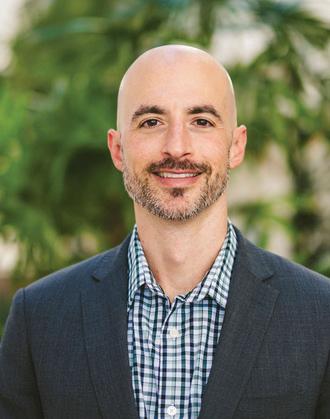
Through a competitive multi-stage process, Anastario was selected as 1 of 14 junior faculty to participate in the JPB Environmental Health Fellowship Program, funded by The JPB Foundation and administered by Harvard T.H. Chan School of Public Health. Anastario will receive funding, as well as mentoring, and training in proposal development, leadership, communications, and more.
Cristina Palacios was elected as chair of the Department of Dietetics and Nutrition. Palacios has conducted several trials in adolescents and adults to determine the effects of dietary supplements and functional foods on bone and body composition. Her research is currently focused on studying the role of diet and physical activity on obesity and weight gain in infants, children, adolescents, and pregnant women. She has been funded by NIH, USDA, RCMI and RTRN, and the Robert Wood Johnson Foundation. In addition, she is a consultant for the World Health Organization in Vitamin D and for the Pan-American Health Organization in infant nutrition.
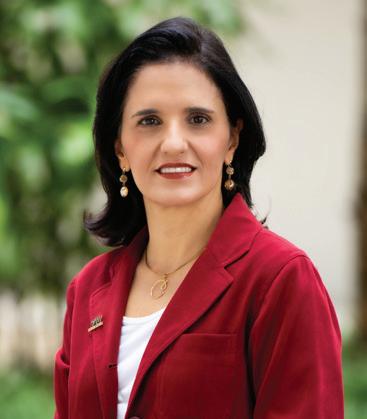 From L to R, Gabriel Odom, Zoran Bursac, Mary Jo Trepka, Emir Veledar & Roy Williams
From L to R, Gabriel Odom, Zoran Bursac, Mary Jo Trepka, Emir Veledar & Roy Williams
Diana Sheehan was awarded a $2.5 million grant from the National Institute on Minority Health and Health Disparities to improve ART adherence among adult Latino MSM with HIV using a sequential, multiple-assignment, randomized trial (SMART).
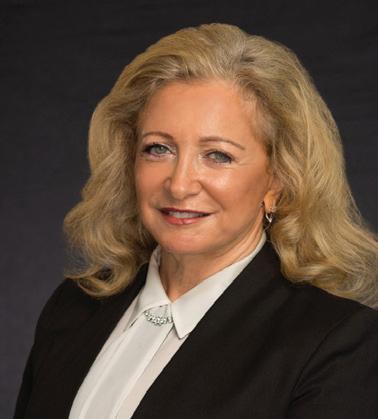



Department of Epidemiology
Melissa Ward was awarded an $893,255 grant from the National Institute on Drug Abuse (NIDA) to lead a 5-year project to improve engagement in care and access to services for women with opioid use disorder (OUD).
The rank of Distinguished University Professor is the highest recognition available to FIU professors. These Professors are the leaders of FIU and set the example for research, scholarship, creative activities, teaching, and service excellence. Congratulations to our faculty for receiving the Distinguished University Professor ranking at FIU!
Marianna
K. BaumDistinguished Professor Department of Dietetics and Nutrition
Marianna K. Baum is a highly recognized researcher nationally and internationally in HIV and metabolism. She created a new field of investigation on the nutritional needs of people infected with HIV, for which she was awarded numerous NIH grants. Later, she initiated a field of research on the nutritional needs of people who abuse drugs who had an increased likelihood of HIV and Hepatitis C infection. She has received close to $100 million in grants and authored hundreds of high-impact publications, book chapters and presentations. In 2020, Baum was asked to develop, establish, and run a High-Complexity laboratory that met and exceeded regulatory, scientific, and policy criteria to pass Federal Inspection from the Center for Medicare and Medicaid Services (CMS) for accreditation to accept human samples for diagnostic testing. This challenging task benefited the FIU community and was part of the larger effort to help the State of Florida effectively respond to COVID-19. She is an FIU Top Scholar, and has received numerous awards, including the 2022 Badass Woman of the Year award by the Miami Beach Chamber of Commerce.
Mario De La Rosa
Distinguished Professor, School of Social Work Director, Center for Research on US Latino HIV/AIDS and Drug Abuse (CRUSADA)
Mario De La Rosa is an internationally known researcher who has published over 70 scholarly publications focusing on Latino substance abuse, substance use as a risk factor for HIV/AIDS, violence, delinquency, and crosscultural issues. He has served on numerous NIH scientific review committees and peerreview scientific editorial boards and is a past member of the NIMHD National Advisory Council. In 2022, De La Rosa was elected to the Academy of Science, Engineering, and Medicine of Florida (ASEMFL). He has won two awards for “Outstanding Research Contributions” at FIU. He is the recipient of the National Award of Excellence in Research by a Senior Investigator from the National Hispanic Science Network on Drug Abuse for his lifelong research efforts.
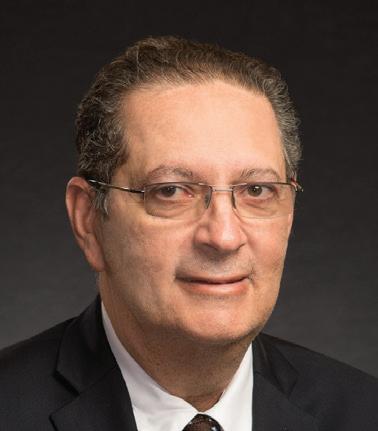
As a teenager, Courtney Wilson never imagined that he would graduate with a Ph.D. one day.
“School was probably one of the scariest things for me at that time,” Wilson recalls his high school years. He lived in New York City in a rented apartment with his single mother and two siblings. After their landlord passed away and due to a limited income, Wilson’s family was forced to split and find new places to call home. Being the youngest in the family, Wilson stayed with his mom and lived in a homeless shelter in uptown Manhattan. “I was starting high school, living in a shelter, and trying to make friends,” he said. “I had friends asking to come over to my house after school, and I’d say no, not today. There was a lot of anxiety around it.”
Experiences like these—although he didn’t know it at the time—would help shape Wilson into the man, educator, and researcher he is today.
Stempel College: Wilson, how did you end up working in social work?
Wilson: When I graduated from Syracuse University, I found difficulty finding a job that gave me purpose and paid enough. I worked as a case manager for about two years, and it was during that time I realized I wanted to do more in the mezzo and macro areas. My job at the time felt very limiting because there was only so much I could do for the people I was serving. That’s what pushed me to get my master’s in social work. So, I went to Touro College in New York City, and during that period, I went from want to get a better-paying career to wanting to make a significant change in people’s lives.
It was during my master’s program that I began to focus on educational outcomes for minority populations, helping teenagers get on the right track and helping them figure out what they want to do post-high school.
Stempel College: What inspired you to work with this age group?
Wilson: I grew up in a family of four. I was the youngest and the first to go to college in my family. In high school, there was no direction whatsoever. It was challenging because I didn’t have anyone to say, hey, this is what to expect, or this is what you should study. I felt like if I had more direction when it came to undergraduate study, I would’ve structured my goals a little bit differently.
Stempel College: What do you hope to bring to Miami and the community now that you are here?
Wilson: I’ve always focused on education, educational attainment, and building educational capacity for youth. In Miami-Dade County, I want to see more black and brown representation in higher education.
I want to be able to do that through my research as well. Additionally, I want to function as a mentor—as someone students can look up to and say, well, if you made it, I could make it. I want students to feel comfortable reaching out to me to discuss issues and barriers they may have that hinder success. I’d like to work with them to help them overcome those barriers and build capacity and resilience. Ideally, I want to help motivate and encourage students to push beyond the limits they’ve set for themselves and believe that graduate school or a Ph.D. program is achievable.



With an increase in back-to-back hurricanes, historic wildfires, and unprecedented flooding, preparing the next generation of disaster management professionals to respond in times of crisis is vital for the security of communities near and far. Stempel College’s Academy for International Disaster Preparedness (AIDP), ranked No. 4 in the nation for its graduate program, is doing just that.
This year, 50 AIDP students got first-hand experience responding to a large-scale simulated international disaster. The three-day field operation exercise was the culmination of a 12-month intensive course that trained students on how to respond to extreme disasters across the globe. The course covered critical topics like deployments, civil-military coordination, reporting lines and authority, damage assessments, and more.
In public health, translating data into clearcut messages can make an impact on the health of millions.
Behind the scenes of major public health decisions are data analysts, like biostatisticians, who develop new methods and model the data to identify trends that help improve approaches to health promotion, disease prevention and clinical care.

“Our job is to use statistical, mathematical and computing methods to analyze the data appropriately and extract value from it to drive population science, medical or clinical decisions. When the existing methods are not adequate, we make modifications or develop new ones to overcome the limitations,” said Zoran Bursac, professor and chair of the Department of Biostatistics, which is ranked No. 43 among public universities by U.S. News & World Report.
At Stempel College, a diverse group of faculty members is training the next generation of biostatisticians. Through active research programs, students learn the latest in biostatistical and computing methods and work on projects that impact communities near and far. They also get the opportunity to present their research at national conferences.
This fall, three doctoral students, Ning Sun, Kazi Tanvir Hasan, and Sergio Perez-Melo, along with Associate Professor Boubakari Ibrahimou and Assistant Professor Gabriel Odom, from the Department of Biostatistics, presented their research at the Joint Statistical Meetings conference, one of the largest statistical events hosted by the American Statistical Association.





“Do you have plants, animals, or seeds with you?” It’s a question travelers get asked before entering the United States after taking a trip abroad.
“The reason they are asking is that you mustn’t introduce anything foreign into our agricultural system,” said Deirdra Chester ’03, a science advisor with the United States Department of Agriculture (USDA). “Our job is to ensure that we protect American agriculture related to plants and animals.”
As a science advisor for the USDA, Deirdra is part of a team of scientists whose task is to ensure anything that could potentially harm the U.S. is kept out. Preparation for a role in government took years of education and persistence, and it all started in the state of Florida. “I am happy I chose this path, although it has not always been easy,” she said.
In 1992, Deirdra was inspired by a food science class to secure her bachelor’s and master’s degrees in nutrition and food science from Florida State University. In 1998, she chose to continue her education and pursue a doctoral degree. Her grades, grit, and determination landed her the prestigious McKnight Doctoral Fellowship, awarded at the time to African Americans pursuing postgraduate degrees in Florida—the fellowship has since opened its applicant pool to include Hispanics. Deirdra applied and was soon accepted to the Ph.D. program in
It’s there where she learned she wanted to work in government and not academia.

“You work hard to get through a Ph.D. It’s very grueling, and you’re constantly proving yourself,” she said. “What I realized with academia is that it’s the same concept. I was open to teaching on the side, but I felt I could make an impact as a government scientist.”
After graduating, Deirdra secured a scientist position with the USDA – an agency she’s been working with for 18 years. She credits her Ph.D. with helping her prepare for a career in government.

“If you can get a Ph.D. and do the dissertation and get out the door, it puts you in a position that you can pretty much do anything and navigate any system.”
— Deirdra Chester ’03
Modesto
Campus 11200 S.W. 8th Street, AHC5 Miami, FL 33199-001
